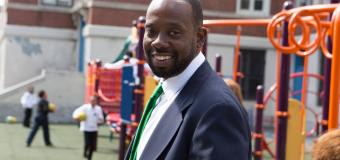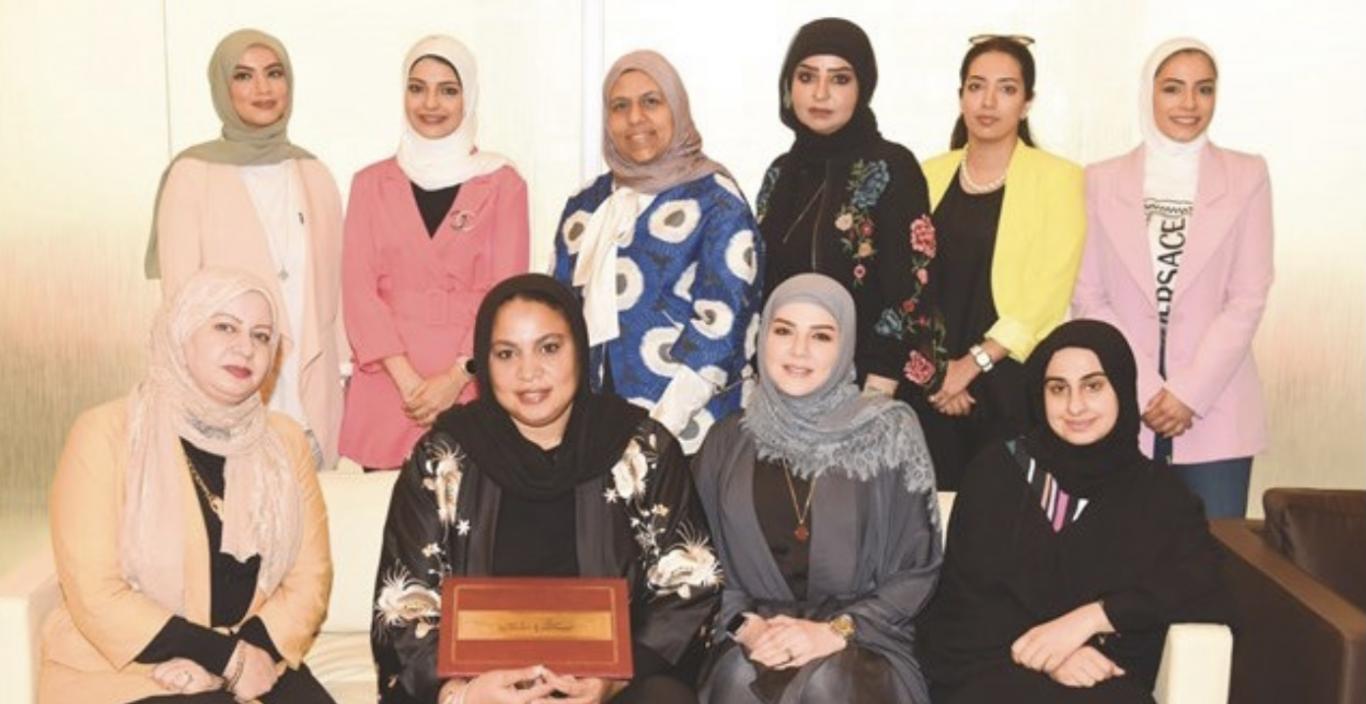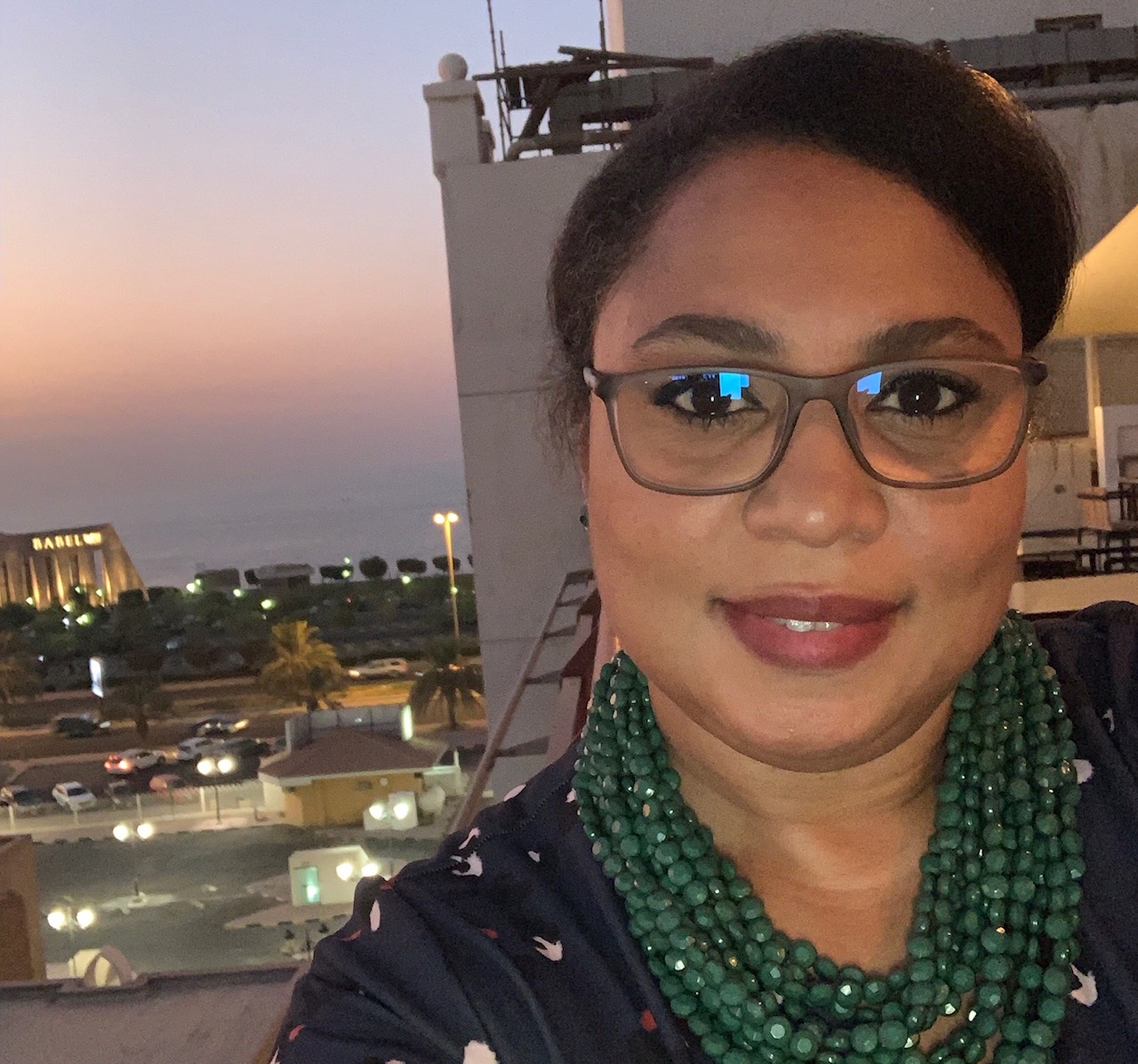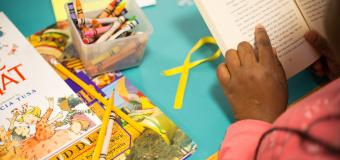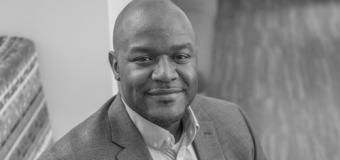Ayanna Cooper (front row, second from left) with Kuwaiti educators in 2019
Dr. Ayanna Cooper had been a classroom teacher for years, but she didn’t discover her real passion as an educator and advocate for English language learners (ELL) until she accepted an assignment to teach pre-kindergartners. To her surprise, she learned that virtually none of them were native English speakers.
“I literally I fell in love with teaching them. I didn't have any training or coursework. I was just singing and dancing and chanting and affirming everything they were doing,” she recalls.
Her new students spoke a wide range of languages including Arabic, Spanish, Russian, and West African dialects.
“And slowly, they started speaking English and their native language. By the time they got to the end of pre-K, they were bilingual,” she says. “I saw second language acquisition happen in front of me, not from a book. I was hooked and I wanted to become a real champion for my students.”
Ayanna got her Master of Education (M.Ed.) in Elementary Education from Lesley in 1998 before going on to earn her doctorate. Today, she serves as a part-time faculty member at Kennesaw State University, as well as consults and coaches school leaders.
She serves on the board of directors for the TESOL (Teaching English to Speakers of Other Languages) International Association and has recently published two books, “And Justice for ELs; A Leader's Guide to Creating and Sustaining Equitable Schools” and “Black Immigrants in the United States: Essays on the Politics of Race, Language, and Voice,” co-edited with Awad Ibrahim.
She recently served on a webinar panel in partnership with the United States Department of Education, Office of English Language Acquisition (OELA), and the White House Initiative on Educational Excellence for African Americans, “Celebrating the Diversity of the Black Student: Supporting the Black English Language Learner.” Lesley education alum Craig Martin '07, principal of the Bridge Boston Charter School in Roxbury, Mass. joined her on the panel.
Ayanna hopes to open up a frank conversation about the intersection between race, language, and culture and the issues that affect and connect both Black Americans and Black immigrants.
“The rights that protect English learners grew out of the civil rights movement,” she says. “Let’s make sure we understand that and really approach the work that way.”
“She’s an incredible leader,” says Craig, who first met Ayanna when they served together on Lesley’s Alumni Council, where she was the council’s first Black president. He recalls how they worked together to shift the council’s focus toward community service and to strengthen the relationship between the university and its diverse alumni.
Understanding the Black immigrant experience
As an educator who works every day with students from Cape Verde, Ghana, Somalia, and Senegal, Craig appreciates Ayanna's work addressing the unique challenges Black immigrants face in the U.S.
“They walk in with such cultural richness but when we look at Black English language learners, there are so many additional barriers,” says Craig. “It’s a great conversation to raise awareness on how we’re trying to create the best learning experiences for these students.”
Haitian-born poet and Lesley MFA graduate Enzo Silon Surin '12 has contributed two poems to Ayanna’s anthology on the Black immigrant experience. Black immigrants to the U.S., Enzo explains, carry a kind of “double consciousness,” the sense that they are entering a culture where even complete assimilation may not make them feel entirely welcome.
“You look at Black Americans and their American dream looks very different,” notes Enzo.
Reflecting back on her own school experience has given Ayanna a layered perspective when it comes to understanding the complex challenges faced by Black English language learners. She remembers her surprise when she first saw Haitian-born classmates at her Boston middle school being instructed in French in an upstairs classroom.
“I was amazed because I thought, when they’re downstairs with us, I don't ever hear them speaking French. They're just in class with us. And they were Haitian immigrants—they dressed differently, sounded differently. And I thought—how come nobody else knows that they can speak French? How come they can't speak French downstairs when they’re with us?”
The Mattahunt School on the street where she grew up has gone on to become one of the first schools in the country to offer a dual-language program in Haitian Creole. Ayanna would like to see programs like this receive more attention.
“There’s the idea of language discrimination and then you add on race, and you add on class, and there's a lot of intersectionality.”
“I tell teachers to be open to the possibilities.”
In 2019 Ayanna was chosen to serve on a four-week English Language Specialist project focusing on secondary English language curriculum in Kuwait. In 2021, she was selected as one of the U.S. Department of State’s Anniversary 30@30 English Language Specialists who have made a lasting impact on the TESOL field.
Her experience working with Kuwaiti educators was eye-opening. Many K-12 educators in the ELL field, she notes, haven’t had the opportunity to travel extensively or teach internationally.
She hopes to reach those teachers with her book on English language learners.
“I didn't write the book for the person with 30 years of ELL experience. I wrote it for that new or mid-career educator so that they can make the best decisions for their students. I’m trying to bring it back to the basics,” Ayanna says.
She also hopes to encourage teachers who are feeling burnt out or discouraged.
“I didn’t set out initially to teach English as a second language. But I accepted an assignment and literally, it changed the trajectory of my career,” she recalls. “I tell teachers to be open to the possibilities. You really don't know where your career might take you.”
Lesley can help you discover your path as a teacher
At Lesley, you can get your initial teaching license through a bachelor’s degree or master’s degree in education. Prepare to teach early childhood through high school education, special education, teaching English language learners, art education, and more. We also offer professional licensure programs, graduate certificates, and PhDs. Learn more about our undergraduate and graduate education programs.
Related Articles & Stories
Read more about our faculty, students, and alumni.
